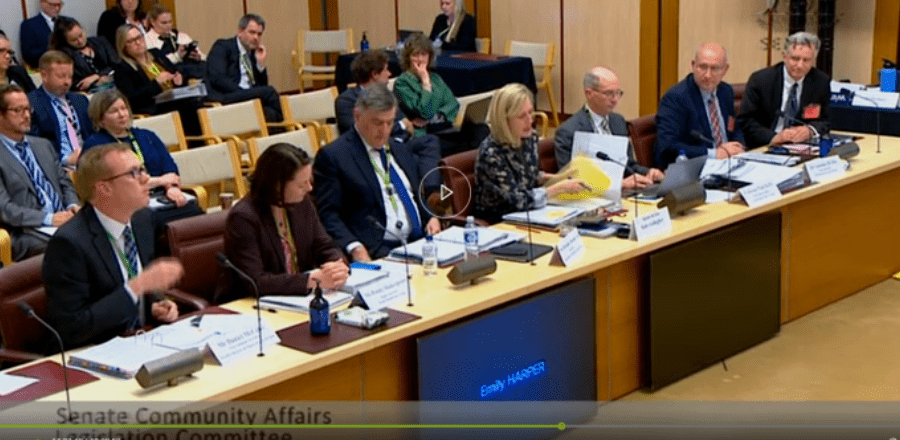
To those outside of political circles, the idea of Senate Estimates can sound like an ineffective sleeping aid. Weeks of Government Ministers and senior bureaucrats being inundated with questions by Senators about issues within their areas of responsibility.
But for those who know what they can bring, Senate Estimates are a unique opportunity, especially for those in the medical space, to advocate for issues and get on-the-record responses for issues within government departments.
For those in healthcare, the Committee to watch is Community Affairs. This Committee has direct purviews for all aspects of the Health and Aged Care portfolios.
Senate Estimates are one of the only times of the year that both Ministers and top-level officials from government departments and authorities are in the same room and must explain, on record, government spending and how government programs are run to the Committee.
One of the most vital members for the Government during this process is the Minister Representing the Minister for Health at the table. As Senate Estimates only involves members of the Senate, the Minister representing has to come from the Senate. Over the last 22 years, only one Senator has held the role of Minister for Health on a permanent basis (Senator Kay Patterson AO from 2001 to 2003). This is important as the Minister representing is likely to either be a junior Minister or a Minister with no connection to the policy portfolio.
An example of this was during the October 2022 Senate Estimates where Minister Katy Gallagher, who at the time was Minister for Women, Minister for Finance and Minister for the Public Service, represented Minister Mark Butler, despite not having a healthcare portfolio of her own.
Indeed, at the current time, only one of the five Ministers and Assistant Ministers with a health-based portfolio sits in the Senate (Senator the Hon Malarndirri McCarthy, Assistant Minister for Indigenous Health).
Given the high probability the Minister representing is not from a healthcare background, the role of this Minister is simple: advocate for Government policy decisions and deflect as many attacks as possible from the Opposition and Senate crossbench.
So how can you make that work for your medical technology company?
The key is making sure that Senators are well abreast of your areas of concern in the Department and are appropriately prepared to ask questions of the relevant bureaucrats.
Whilst a back-and-forth argument between a Minister representing and a Senator may make for good news clips, a non-politically massaged response by an Assistant Secretary can uncover underlying issues with policy, or the potential for those with experience outside of the Department to help steer new policy.
It also provides a way for you to advocate for funding that may be on the line for cuts or efficiencies. While you may not be in the room, Committee Members with interests in line with your organisation can and will ask probing questions to both Ministers and Departments as to why your issue is facing scrutiny and whether any cost-saving measures are entirely appropriate.
But most importantly, you need to remember that Senators who do not represent the Government do not have the logistical heft of a department to assist them. Indeed, Shadow Ministers normally only have one to two more staff than their Opposition colleagues. Whilst Opposition will have key issues they want to probe, they are open to other issues being raised with them which need further advocacy.
Much like anything in politics, there is always the ability to advocate for sensible policy. Senate Estimates can provide one of the best platforms to ensure a practical scrutiny of upcoming measures, while ensuring your issue is not lost to the political winds of a 24-hour news cycle.